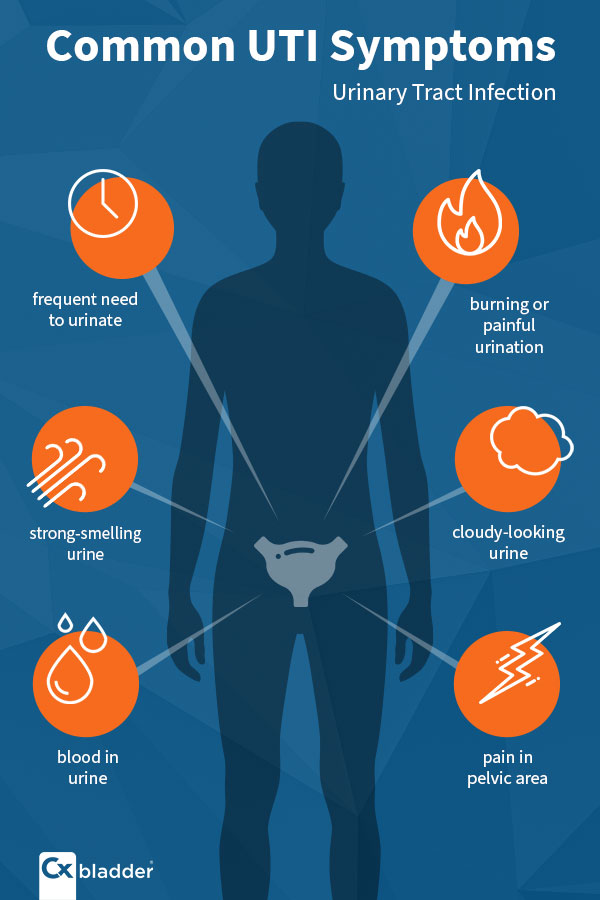It was a Sunday afternoon, and I was feeling awful. The burning sensation when I urinated was unbearable. My lower abdomen ached, and I felt a constant urge to go to the bathroom, even if I had just emptied my bladder moments before. Thankfully, I had a doctor’s appointment scheduled for the next day, and I knew I needed to get checked. But the feeling also filled me with dread. What if my doctor told me I had a UTI, and then I had to tell my friends and family? What if they thought I was being dramatic or didn’t take proper care of myself? The fear of judgment was almost as overwhelming as the discomfort.

Image: healthjade.net
This experience isn’t unique. Many women, and even men, live with UTI symptoms but avoid seeking medical help due to the stigma attached to urinary tract infections. We often feel embarrassed, ashamed, or worried that others will judge us for having a condition that many associate with poor hygiene or a lack of cleanliness. This stigma can have serious consequences, often leading people to delay getting the treatment they need.
Understanding the Stigma Surrounding UTIs
The unfortunate truth is that UTIs are often mistakenly linked to personal hygiene and behavior, leading to negative perceptions about individuals experiencing them. This judgment is intensified in women, as UTIs are more prevalent amongst them due to anatomical factors. This societal pressure to maintain a certain standard of cleanliness, especially when it comes to our bodies, can create a sense of shame when we fall short, even if it’s due to a medical condition beyond our control.
The stigma surrounding UTIs also leads to misinformation and a reluctance to seek help. People might believe that UTIs are not serious, or they might be afraid to discuss their symptoms with a medical professional. This can result in delayed treatment, allowing the infection to worsen and potentially leading to more severe complications.
What are UTIs?
A urinary tract infection (UTI) is an infection that affects any part of the urinary tract, which includes the kidneys, ureters, bladder, and urethra. Most UTIs involve the bladder, a condition known as cystitis. UTIs are caused by bacteria that enter the urinary tract and multiply, leading to inflammation and infection. Symptoms commonly include:
- A burning sensation during urination
- Frequent urination, even with small amounts of urine
- Pain or pressure in the lower abdomen
- Blood in the urine
- Cloudy or foul-smelling urine
- Fever and chills
- Lower back pain
While these symptoms are generally associated with UTIs, it’s crucial to remember that they can also be signs of other medical conditions. It’s always essential to consult a doctor for a proper diagnosis and treatment.
Why Do UTIs Happen?
UTIs are a common condition, especially in women, with some experiencing recurrent infections. Factors contributing to their development include:
- Anatomy: Women have a shorter urethra than men, making it easier for bacteria to reach the bladder.
- Hormonal changes: Women experience changes in their hormone levels during pregnancy and menopause, which can affect the urinary tract’s susceptibility to infection.
- Sexual activity: Sexual activity can introduce bacteria into the urethra.
- Irritation or injury: Urinary tract infections can also be caused by irritation or injury to the urethra, such as during catheterization.
- Hygiene: While UTIs are not primarily caused by poor hygiene, sometimes improper wiping after using the bathroom can lead to bacteria entering the urethra.
- Weakened immune system: A weakened immune system can make you more susceptible to UTIs.
- Underlying medical conditions: Certain medical conditions, like diabetes and kidney stones, can increase the risk of developing UTIs.

Image: www.cxbladder.com
Debunking Myths and Challenges
The most common misconception is that UTIs are caused by a lack of personal hygiene. While maintaining good hygiene practices is important overall health, UTIs are usually not caused by a simple matter of cleanliness. A more accurate understanding emphasizes the complex interplay of anatomical, hormonal, and lifestyle factors.
Another significant challenge is the tendency to downplay the seriousness of UTIs. Many people, especially women, are familiar with these infections and assume they are just a minor annoyance that will resolve on their own. This attitude can lead to a lack of adherence to medical advice. However, untreated UTIs can lead to serious complications, like kidney infections, which can require hospitalization and can even be life-threatening in some cases.
Breaking the Stigma and Encouraging Open Communication
The first step in breaking the stigma is understanding that UTIs are common and shouldn’t be shrouded in shame. Openly discussing these infections with friends, family, and healthcare providers can help destigmatize them. We need to encourage people to seek medical help without fear of judgment and to advocate for their health needs.
Educating ourselves and others about the causes and risks of UTIs is essential. Spread awareness about the importance of seeking prompt professional medical care, especially if experiencing persistent or severe symptoms. Encourage those who experience UTI symptoms to reach out to their healthcare providers for proper diagnosis and treatment.
Tips for Preventing UTIs
While UTIs can’t always be completely prevented, several measures can reduce your risk. Here’s what you can do:
- Drink plenty of fluids: Staying hydrated helps flush out bacteria from the urinary tract.
- Urinate frequently: Don’t hold your urine for long periods.
- Wipe from front to back: This helps prevent bacteria from entering the urethra.
- Avoid bubble baths and scented soaps: These products can irritate the urethra.
- Practice safe sex: Use condoms to reduce the risk of introducing bacteria.
- Wear loose-fitting, breathable clothing: Tight clothing or underwear can trap moisture and increase the risk of infection.
- Avoid caffeine and alcohol: They can irritate the bladder.
- Maintain a healthy weight: Obesity can increase the risk of UTIs.
- Consult a doctor about medications: Some medications can increase the risk of UTIs.
Expert Advice for Preventing and Managing UTIs
Here are some additional tips from experts:
- Cranberry supplements: While there is still debate about their effectiveness, some studies suggest that cranberry supplements may help prevent UTIs.
- D-mannose: This natural sugar can potentially prevent bacteria from adhering to the lining of the urinary tract.
- Probiotics: Some probiotics may help restore the balance of bacteria in the gut and urinary tract, potentially reducing the risk of UTIs.
- Cranberry juice: While research is mixed, some studies suggest that drinking cranberry juice may help prevent UTIs.
- Regular bladder emptying: After sexual activity, it’s important to urinate to help flush out potential bacteria.
Frequently Asked Questions (FAQ)
Q: Can UTIs be cured?
A: Yes, UTIs are typically treated with antibiotics. The course of treatment depends on the type of infection and its severity.
Q: How long do UTIs last?
A: The duration of a UTI varies depending on the severity and treatment. With antibiotics, symptoms usually improve within a few days. However, recurrent UTIs might require longer treatment plans.
Q: Are UTIs contagious?
A: UTIs are not contagious, meaning they cannot be spread from person to person like a cold or flu. However, bacteria can be transferred from one part of the body to another, so it’s important to maintain good hygiene practices, especially after using the bathroom.
Q: Are UTIs more common in women?
A: Yes, UTIs are significantly more common in women than men. This is mainly due to the shorter urethra, which allows bacteria to reach the bladder more easily.
Q: What can I do for pain relief while waiting for a doctor’s visit?
A: Over-the-counter pain relievers, such as ibuprofen, can help with pain and discomfort. Drinking plenty of water can also help to flush out the bacteria and soothe the irritation of UTIs.
Uti Symptoms But Negative Culture
Conclusion
UTIs are a common medical condition, and we need to remove the stigma surrounding them. Seek medical care when experiencing symptoms and don’t hesitate to discuss your concerns with your doctor. Remember, UTIs don’t define you, and they’re treatable.
It’s important to remember that UTIs are treatable and manageable. It’s time to break the stigma surrounding them and encourage open communication about these infections. Have you ever experienced a UTI? Share your experience with us in the comments below!





